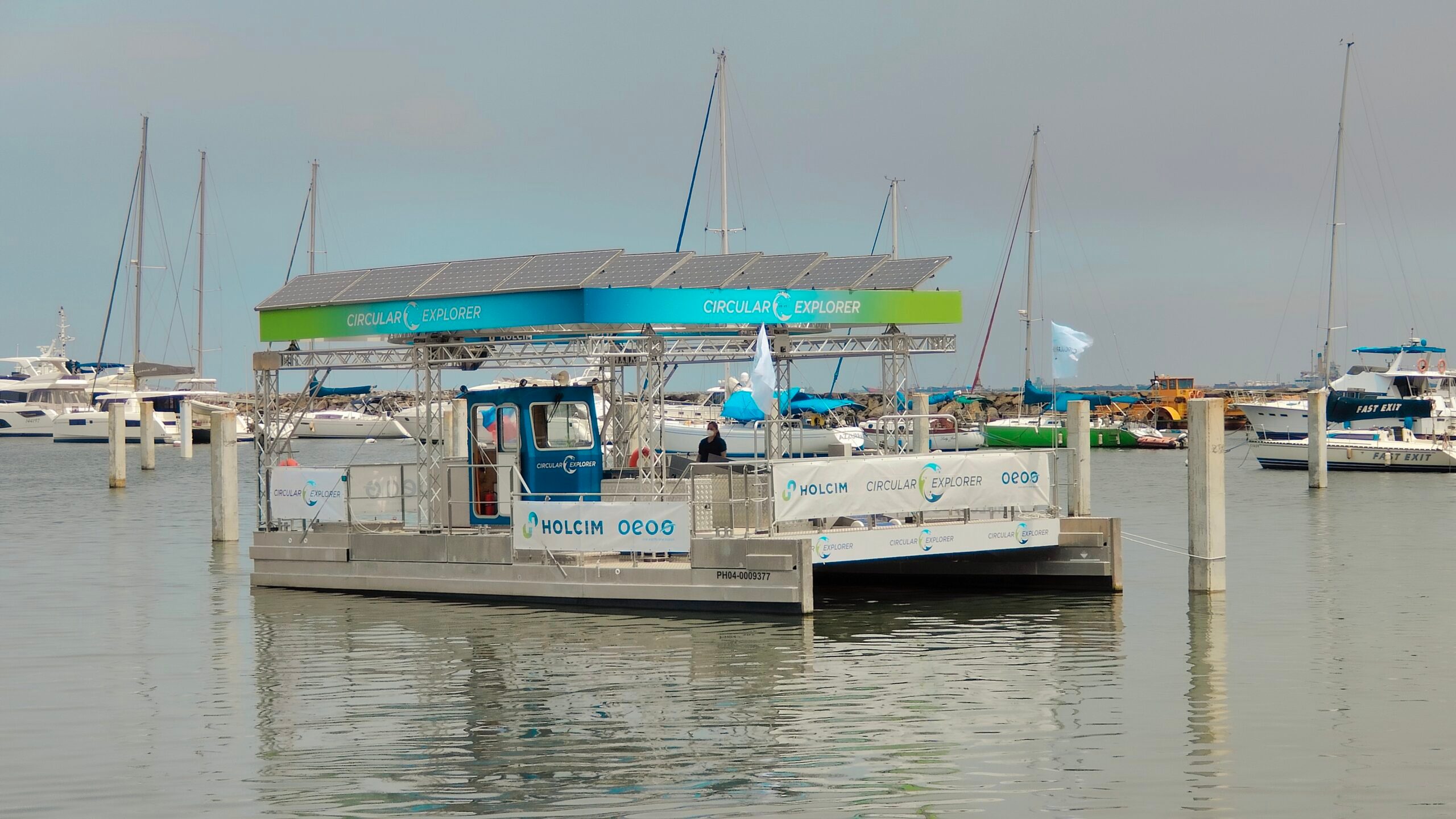SUMMARY
This is AI generated summarization, which may have errors. For context, always refer to the full article.

MANILA, Philippines – The Circular Explorer, a solar-powered sea vessel designed to collect trash from the ocean, has arrived in Manila, with a formal launch held on Thursday, July 7.
The vessel or specifically, the catamaran, will be calling Manila Bay its home for 3 years, where it will collect trash, pick out the recyclable materials, and deliver them to a recycling center on land. Before arriving in Manila, it first operated in Hamburg, Germany for its testing phase in August 2021 after three years in development, and made several stops in Northern Europe in December 2021.
It has an ability to collect up to 4 tons of trash every day, and is also fitted with sensors that allow it to map the water quality, along with the levels of microplastic pollution. It operates using solar energy, but for emergencies, it can rely on an onboard traditional generator.
Swiss-based building materials firm Holcim and its partner organization One Earth – One Ocean are behind the Circular Explorer Project, as one of the former’s sustainability efforts. Holcim is among the biggest in the cement business – an industry which accounted for about 8% of the world’s carbon dioxide emissions in 2018 – so there has been an urgent need for firms in this industry to push for sustainable innovations.
In the Philippines, they are partnering with the University of the Philippines Marine Science Institute (UP MSI), and will be sharing the pollution and water mapping data they collect.
Deo Onda, deputy director for research at the UP MSI, said, “By advancing research together, we can help educate the public and support key decision makers with relevant data to take action.”
“Now more than ever, we need science to help us understand the environmental challenges we are facing and to guide us with equitable and sustainable solutions.”
Horia Adrian, president and CEO of Holcim Philippines, called the vessel – which itself is made of recyclable materials – a “symbol of Holcim’s commitment to sustainability.”
While the vessel was also partly designed to embody Holcim’s proclaimed push for a reduce-reuse-recycle “circular economy,” its goal is to prove its effectiveness in cleaning up the sea as well.
Adrian said that the Philippines, because it ranks as among the world’s top plastic polluters, is where the Circular Explorer might be able to make the most impact, which is why it was chosen as the host. Their vision, he said, is if they can make the project succeed in Manila, they would be able to eventually deploy more vessels in other coastal areas in the country, and later, elsewhere in the globe. – Rappler.com
Add a comment
How does this make you feel?
There are no comments yet. Add your comment to start the conversation.